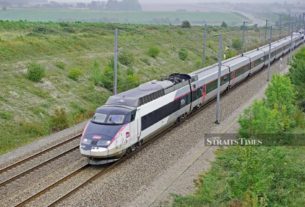The fountain and pool designer S. Napa (Thailand) Co Ltd plans to expand its business by 15% this year amid a boom in condominiums and concerns about health, environment and water scarcity.
“The condominium boom in Greater Bangkok, Hua Hin and Pattaya spurred our swimming pool business in the first half of the year,” said executive vice-president Sasina Napasab.
But the booming period of Phuket’s property market has slowed in recent months, with the province facing many earthquakes that delayed project developments and residential construction.
“There are more than 100 competitors in the swimming pool market, but we are confident that our long-established experience in completing over 100,000 pools and after-sale service can maintain our customer base,” Mrs Sasina said.
Its customers include high-end homeowners and property projects like luxury hotels and resorts, as well as condominium and housing projects by the country’s top 20 listed and non-listed developers.
The company’s swimming pools are built with ceramic tiles, which are believed to be more durable and longer lasting than vinyl materials and better suited to Thailand’s geography of soft soil.
“But swimming pools built with tiles take a longer time for construction, at around three months. For vinyl, it takes just 3-4 weeks to complete,” Mrs Sasina said.
Swimming pools at home have become more popular as many people have less time to exercise at an outside fitness centre. Some choose to have a small pool (four-by-five metres) with a starting price of 800,000 baht.
There is also the option of an exercise pool in which people can exercise with massage jets, dumbbells and water cycling. This kind of exercise is known as hydrotherapy.
“Hydrotherapy has become more popular with the health consciousness trend, particularly among elderly people who prefer a light exercise or patients who need physical therapy,” Mrs Sasina said.
Founded in 1959, S. Napa started out in water treatment systems before expanding to swimming pools the same year.
Aside from pools, the company designs, installs and maintains stylish and themed concepts for fountains and water features at shopping malls, hotels and resorts.
The trend is gaining popularity in high-end houses as well.
The home segment accounts for 60% of volume and 40% of projects but as much as 70% of sales value.
S. Napa has two subsidiaries. One is Global Utilities Services Co Ltd (Gusco), a partnership with the Industrial Estate Authority of Thailand and French environmental utilities firm Veolia Water. Gusco provides environmental services, infrastructure, utilities and water management.
The other is GEM Environment Management Co Ltd, a smaller-scale wastewater treatment firm.
Mrs Sasina said that many factories in industrial estates are concerned about water scarcity after the country experienced a severe drought in 2010. Therefore, factories have begun to reuse their own water.
S. Napa distributes a reverse osmosis drinking water system and water treatment unit priced at 80,000 baht that sold briskly during the floods as water cleanliness became a concern.
The company recorded 700 million baht in sales last year and aims for 15% growth in 2012, despite sales being frozen for four months during the post-flood period.
The international market accounts for 5-10% of sales, with jobs in countries such as Myanmar, Laos, Cambodia, the Maldives and Bangladesh. In Myanmar, S. Napa plans to market its water treatment.
“We are eyeing expansion once the Asean Economic Community (AEC) opens in 2015, but Singapore and Hong Kong have more advantages as they have no tax duty,” Mrs Sasina said. “Customers go to them rather than Thailand.”
From Sept 19 to 21, S. Napa will join the Pool & Spa Tech Asia event at Impact Muang Thong Thani. The company hopes to get noticed by architects, designers and entrepreneurs from the local market and overseas.
Source: http://www.bangkokpost.com/business/economics/309512/in-pools-s-napa-finds-a-fount-of-new-revenue

